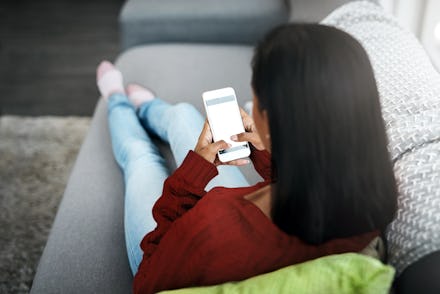These women got a popular South Asian dating site to change their racist filter

The killing of George Floyd last month has sparked outcries against not only police violence, but the white supremacy that undergirds it, and every aspect of society. Recently, food and media companies began finally confronting the racism built into their institutions. Now, online dating is having its own long-overdue racial reckoning. In response to an online effort led by three women, South Asian dating site Shaadi has stopped asking for users’ skin color, CNN reported.
Shaadi, Hindi for “marriage,” is the world’s biggest dating site for the Indian diaspora. Meghan Nagpal, a Shaadi user in Toronto, logged back onto the site just as protests in response to Floyd’s death began to emerge. She saw that Shaadi asked users to specify their skin tone, allowing them to choose from options like “fair,” “dark,” or “wheatish," — which is the protocol for the site and many others like it. They let other users, in turn, search for possible mates based on these designations. Nagpal tweeted at Shaadi on June 3, requesting it remove its skin color option.
She followed up with Shaadi a week later by email, per CNN. The site’s response? “Most parents do require” the skin color option.
Hetal Lakhani, who lives in Dallas, saw Shaadi’s email response in a post Nagpal had shared in a Facebook group for South Asian women, CNN reported. Incensed, Lakhani launched a Change.org petition to remove Shaadi’s skin color option, which she, Nagpal, and other members of the Facebook group tweeted. It earned 500 signatures in just an hour.
Blogger Roshni Patel, founder of Urban Asian, shared the petition and posted a dismayed tweet directed at Shaadi, according to CNN. “To add a filter to a dating site because of our skin complexion!” she tweeted. “What are we teaching our South Asian gen! Sick to my stomach!.”
Shaadi took note of her tweet. “The search filter was blind spot from our side and we have removed it,” the dating site responded. Many South Asian Americans can attest to the reality that this filter hasn't been a blind spot as much as a staple, perpetuating the a mentality that's been prevalent in the community for entirely too long.
This exchange goes beyond Shaadi and speaks to the much larger problem of colorism across Asian and other diasporas, in which light skin is upheld as more attractive than dark skin. Indeed, skin lightening is a big business, worth a projected $31.2 billion by 2024, according the World Health Organization. Lightening products make up half of the skincare market in India. I’ve even used these products myself at one point, and when I’ve visited the Philippines, my relatives have remarked, with a hint of disapproval, at how dark I’ve gotten after staying out in the sun.
In these communities, light skin is not only a symbol of wealth and power — just turn on the TV, and you’ll see that the local celebrities are almost exclusively fair-skinned — it literally enables access to wealth and power, as I’ve reported for VICE. Becky Choma, director of the social and political psychology lab at Ryerson University in Toronto, told me that in India, upper-class suitors deem light-skinned women more attractive than their dark-skinned counterparts. Light-skinned women also have better-paying jobs. And as Lakhani’s petition states, “people with darker skin experience greater prejudice, violence, bullying, social sanctions.”
Seeing Lakhani and other South Asian women mobilize to take down what’s ultimately a racist dating profile option, no matter how subtle and innocuous it might seem, is heartening. I hope the conversation keeps going and we continue to dismantle the white supremacy that, again, seeps into every corner of our lives — even who we fall in love with.